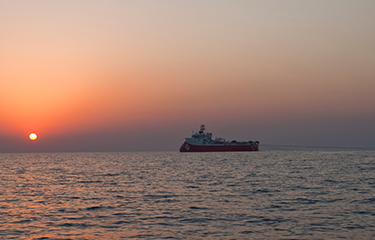The 100th meeting of the Inter-American Tropical Tuna Commission (IATTC) ended on 5 August with agreements on transshipment and compliance, and a commitment to adopt a harvest strategy for north Pacific albacore at next year’s meeting.
IATTC members followed the lead of the International Commission for the Conservation of Atlantic Tunas (ICCAT) and the Indian Ocean Tuna Commission (IOTC) by adopting stronger oversight for transshipment at sea. Transferring catches from a fishing vessel to a larger carrier vessel which takes fish to port is a common practice, but according to a statement by the Pew Charitable Trusts, which holds observer status at the IATTC, there were loopholes in the data collection requirements that allowed for the misreporting of catch, or in some cases, no reporting at all. The latest decision by the IATTC closes those loopholes.
“Although agreement could not be met on a full harvest strategy for north Pacific albacore, the Commission committed to adopt one at its meeting next year, and the steps taken this week will lead to better management in the future," Thew Pew Charitable Trusts International Fisheries Program Senior Officer Grantly Galland said. "Less than two years after it nearly left its tropical tuna fisheries unmanaged after failing to adopt any relevant rules, IATTC has demonstrated a renewed commitment to its mandate to sustainable management.”
In November 2021, the ICCAT enacted enhanced reporting requirements to ensure that detailed information is available to allow for cross-checking of transshipment reports between information reported by the fishing vessels and by the carrier vessels. This was also linked to the recommendation on Port State Measures to ensure port states and other relevant inspection authorities have the information they need on transshipment activities.
In May, the IOTC required all transfers of tuna, except from pole-and-line vessels in the Maldives, to be conducted in port rather than at sea. The IATTC has not gone so far as that, but has rather focused on improved reporting.
The IATTC also agreed to establish a working group on electronic monitoring (EM), intended to lead to improvements in data collection and oversight of fishing vessels.
It is likely that the Western and Central Pacific Fisheries Commission (WCPFC), which gets its data from the same international scientific committee, and cooperates with ICCAT to manage Pacific tuna stocks, will follow suit given the close relationship between the two regional fishery management organizations.
“Looking ahead, transshipment and albacore management will be on the agenda at the meeting of the Western and Central Pacific Fisheries Commission in December, where managers should continue to ensure that governance is improved across the entire Pacific Ocean," Galland said.
Photo courtesy of cacar/Shutterstock







